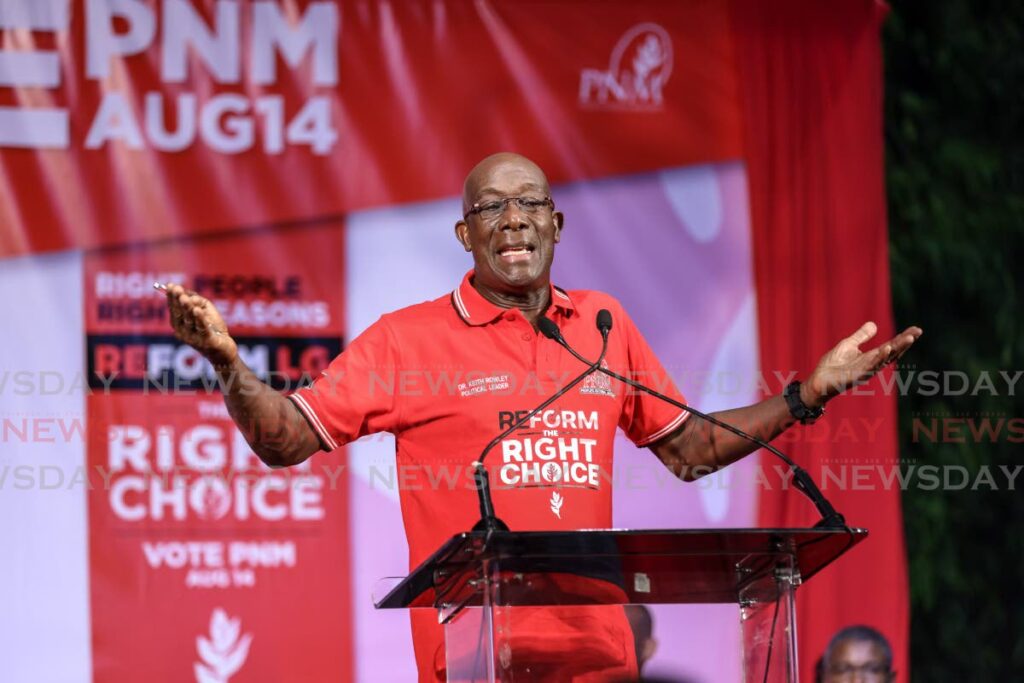Vetting bad apples

TOO MANY questions are left lingering in the wake of the Prime Minister’s announcement on Saturday of plans to establish what he termed “vetted units” within the police service.
Dr Rowley’s announcement, made at a political event in San Fernando, as well as his chairing of a meeting between top law enforcement officials and the National Security Council on Sunday, served as a clear acknowledgement of the immense pressure on his administration to act given the recording of more than 300 murders.
While the PM wished to send a clear signal that he remains in charge and his government is not asleep at the wheel, the details of his new proposal are fuzzy.
Dr Rowley appeared to suggest part of the problem of apprehending suspects stems from police corruption and tip-offs to criminals from inside the service.
“There are too many criminals in the police,” he said. “We have to have vetted units.
“We are prepared to pay extra to police officers in those vetted units if they will maintain their integrity and help us to root out the criminals in the police service, in the customs, in immigration and in the Parliament.”
Such comments are not only vague, but they are also confusing given the not unreasonable assumption that anyone joining the police is already subject to vetting.
To join the police in this country there are, on paper, several requirements, including a polygraph test, a psychological assessment, and a drug test. Additionally, a candidate must have a certificate of good character and must attend screening sessions.
It is possible the PM, who said the plan was suggested by “American experts,” may have in mind the practices of countries where a specialised unit is used to screen all recruits.
For example, the UK’s Metropolitan Police has a police vetting unit which not only carries out checks for all new applicants but also processes vetting renewals for serving officers.
But Dr Rowley’s suggestion that these units will be subject to higher pay also points to other questions.
Where will these units fall within the overall police hierarchy? How will they relate to the rest of the service? Will officers in non-vetted units be sidelined?
Meanwhile, will these new units be subject to existing bodies such as the Police Complaints Authority (PCA) and the Police Service Commission (PSC)? It is arguable that authorities should be focusing on strengthening both, not undermining them.
The truth is, vetting is only the start of the issue when it comes to police corruption.
Equally if not more important is the impact of organisational culture on new recruits, most of whom we imagine enter with good intentions before being transformed – by low pay, overwork, politicisation and demoralisation – into proverbial bad apples.


Comments
"Vetting bad apples"